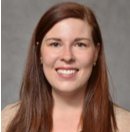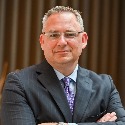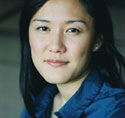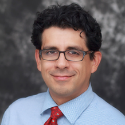Site Stats
Host Site: Pharmaceutical Care Leadership
Program Length: 2 years
No. of Positions: 2 per year
NMS Match Code: 111226
Coordinating and Leadership Preceptor: Todd D. Sorensen, PharmD
E-mail: soren042@umn.edu
Resident: Meet the current residents
Purpose
The purpose of this residency is to prepare pharmacists to be leaders in the practice of pharmaceutical care. As the profession continues to evolve, there is a growing need to advance pharmacy practice and demonstrate the pharmacist's value on healthcare teams. Our goal is to prepare residents with knowledge and skills necessary to lead change in ambulatory settings, paving the way for new opportunities and inspiring the next generation of pharmacists.
Design
The PCLR is unique in its design, providing a set of experiences over two years focused on developing leadership skills in practice development, establishing personal influence, advocacy in the profession, and teaching. Residents also complete the Collaborative Residency Teaching Program.
Year 1 of the residency includes clinical practice at one of the two University-affiliated Clinics: Broadway Family Medicine Clinic or M Health Fairview Clinic - Smileys. Significant time is also devoted to teaching (both didactic and experiential) responsibilities.
During Year 2 of the residency, residents move to a new clinical practice site to establish an ambulatory care practice. Teaching experiences with pharmacy students continue during this year. General leadership development activities occur throughout both years of the program, including serving as Co-Lead Residents for the entire University of Minnesota PGY-1 Pharmacy Residency Program.
The PCLR offers two residency positions annually.
Year 1 Site Profiles
The University of Minnesota provides clinical sites for five family medicine residency training sites in the metro area, including Broadway Family Medicine and M Health Fairview Clinic - Smiley's. Across these family medicine programs, we have seven clinical pharmacy faculty, three pharmacy residents, and pharmacy students. Characteristics of these sites can be seen on the Table of Site Characteristics, and site selection for the PCLR are decided following ASHP Match results.
Year 2 Site Information
In Year 2, residents pursue development of a new practice site (to be determined during the first year of residency), complete a business plan, and lead all aspects of practice development, including relationship building with team members, establishing referral and care management systems, measuring impact, and communicating results to administrators.
Clinical Practice and Practice Management
Pharmaceutical Care Leadership residents provide comprehensive medication management (CMM). CMM is a systematic approach where the pharmacist ensures medications are individually and collectively assessed to determine that each medication is appropriate for the patient, effective for the medical condition, safe given the comorbidities and other medications being taken, and able to be taken by the patient as intended. The pharmacy resident takes responsibility for the patient’s drug related needs, develops therapeutic plans, orders laboratory tests, and uses prescriptive authorities to initiate, modify, or discontinue drug treatment.
The residents work collaboratively with the interprofessional healthcare team, which may include and is not limited to physicians, nurse practitioners, physician residents, care coordinators, behavioral health professionals, nurses, front desk staff, social workers, dieticians, and interpreters.
Practice management and change leadership is an integral part of the pharmacy profession and this residency program. There are various opportunities to strengthen practice management skills throughout Year 1 and prepare for Year 2. The resident will be able to apply important practice management skills through quality improvement work, creating a business plan, developing a clinical practice, and strengthening leadership skills through collaborative practices. Change leadership is developed through topic discussions, one-on-one mentorship, and development of the Year 2 clinical practice site.
Leadership Development
The residency addresses leadership development within 4 domains:
- Personal Development: Assigned readings, preceptor-facilitated discussions, and other learning activities allow residents to explore the qualities and skills consistent with those exhibited by effective leaders.
- Practice Advancement: The residency is designed so that residents gain experience taking significant responsibility for practice development in a location where pharmaceutical care practice has not been well-established.
- Teaching/Mentoring: Residents are heavily involved in both didactic teaching (primarily in the College of Pharmacy's practical skills lab) as well as experiential teaching in their clinical practice environment. With respect to didactic teaching, residents not only assist in the delivery of educational material, but work closely with faculty to design and implement student learning activities.
- Professional Advocacy: The program offers an environment for residents to increase awareness of issues facing pharmacy and actively debate strategies for resolving these issues. Residents participate in professional association policy-making activities and gain awareness of professional association activities and the legislative process during a rotation with the Minnesota Pharmacists Association (MPhA).
There is tremendous opportunity for residents to explore personal career interests. These experiences are developed collaboratively between residents and program preceptors and may include (but are not limited to) activities related to payer reimbursement, political advocacy, professional association activities, writing for publication, etc.
A full description of the philosophy and structure of this residency experience is available via the following citation: Pharmaceutical Care Leadership: An Innovative Residency Model. J Am Pharm Assoc. 2003;43:527-32. Download a PDF
A follow up evaluation of the impact of the program over its first 15 years of operation has been published in INNOVATIONS in pharmacy.
FAQ: What is the difference between a two-year health system administration and the PCLR experience?
The PCLR experience is quite different from a two-year health system residency in terms of both focus and design. Some noteworthy elements include: 1) PCLR is focused on clinical pharmacy delivery in ambulatory care clinics - it does not include an inpatient program management focus, 2) practice management learning experiences immerse residents in the development and management of a CMM practice in primary care settings, and 3) leadership development experiences focused on the knowledge and skills required to initiate and sustain clinical services in an ambulatory setting through understanding principles of change management and national trends influencing both clinical pharmacy services and primary care medical services.
Site Coordinators

Broadway: Jody Lounsbery, PharmD, BCPS has been practicing and precepting leadership residents at Broadway Family Medicine since 2008. Dr. Lounsbery is an Associate Professor in the Department of Pharmaceutical Care & Health Systems in the College of Pharmacy and in the Department of Family Medicine and Community Health in the Medical School at the University Of Minnesota. Dr. Lounsbery is faculty for the University of Minnesota North Memorial Family Medicine Residency Program. Dr. Lounsbery received her Doctor of Pharmacy degree from the University Of Minnesota College of Pharmacy. Dr. Lounsbery completed a PGY1 Residency at The Ohio State University College of Pharmacy and completed a PGY2 Ambulatory Care Residency at the University of Maryland School of Pharmacy. Dr. Lounsbery is also an Associate Program Director for the Residency Program. She enjoys reading, baking, doing puzzles, and spending time with her family outdoors.

Smileys: Kristyn Williamson, PharmD, BCACP is an online teaching specialist in the Pharmacy Learning Collaborative in the College of Pharmacy and in the Department of Family Medicine and Community Health in the Medical School at the University of Minnesota. Dr. Williamson received her Doctor of Pharmacy degree from the University of Minnesota in 2015. Dr. Williamson completed a PGY-1 Community Pharmacy residency at Virginia Commonwealth University School of Pharmacy. Dr. Williamson has been precepting leadership emphasis residents since 2020. She enjoys reading, baking, and home improvement projects.

Leadership, Advocacy and Practice Development: Todd Sorensen, PharmD, FAPhA, FCCP is a Professor in the Department of Pharmaceutical Care and Health Systems and Senior Executive Associate Dean for Strategic Initiatives and Faculty Affairs for the College of Pharmacy. Dr. Sorensen was the founding Program Director for the College’s PGY1 residency program, serving in this role for 14 years. He has served as a preceptor and mentor to nearly 40 individuals completing the Pharmaceutical Care Leadership track and is honored to have received the Gloria Niemeyer Francke Leadership Mentor Award from APhA in 2015 in recognition for his commitment to mentorship of students, residents and early career faculty. His research and service activities focus on working with health care organizations to implement strategies that improve health outcomes associated with chronic illness, specifically identifying leadership strategies that allow organizations to integrate and sustain medication management services delivered by pharmacists within interprofessional teams. Dr. Sorensen enjoys traveling with his family and playing golf as much as his work schedule and Minnesota weather allow.
Preceptor

Broadway: Jean Moon, PharmD, BCACP is an Associate Professor in the Department of Pharmaceutical Care & Health Systems in the College of Pharmacy and in the Department of Family Medicine and Community Health in the Medical School at the University of Minnesota. Dr. Moon received her Doctor of Pharmacy degree from the University of Minnesota in 2003 and is a graduate of the PGY-1 Residency Program - Pharmaceutical Care Leadership Emphasis in 2005 where she established the pharmacy practice at Broadway Family Medicine. Dr. Moon has been precepting leadership emphasis residents since 2006 and is also the Program Director for the University of Minnesota PGY1 Residency Program. Dr. Moon has a clinical interest in pulmonary medicine and women’s health, and scholarship interest in experiential education assessment and peer review. She enjoys reading sci-fi novels, watching movies, singing karaoke, and hanging out with her family at the lake.

Smiley’s: Chrystian Pereira, PharmD, BCPS established the pharmacy practice service at Smiley’s Family Medicine in 2004. Dr. Pereira is an Assistant Professor in the Department of Pharmaceutical Care & Health Systems in the College of Pharmacy and in the Department of Family Medicine and Community Health in the Medical School at the University of Minnesota. He received his Doctor of Pharmacy degree from the University of Minnesota in 2001 and completed a PGY1 general practice residency at Mayo Medical Center in Rochester, MN. He continued to complete a PGY2 in Ambulatory Care at the University of Washington in Seattle, WA. Dr. Pereira has been precepting leadership emphasis residents at Smiley’s Clinic since 2006. He enjoys bicycling, soccer and flyfishing, but rarely does these at the same time.
